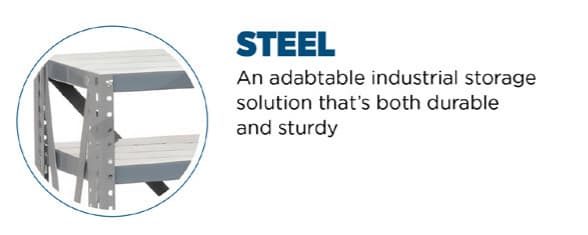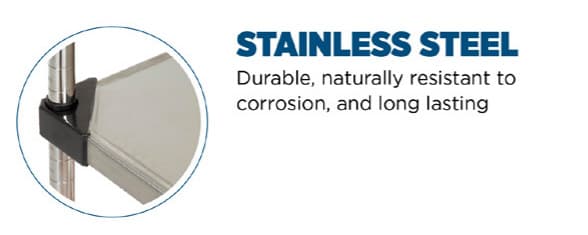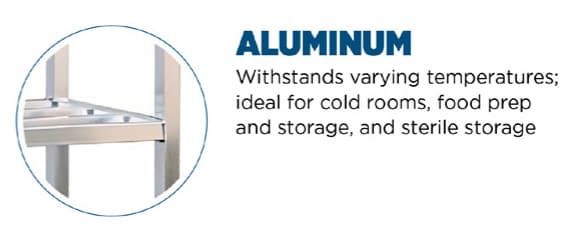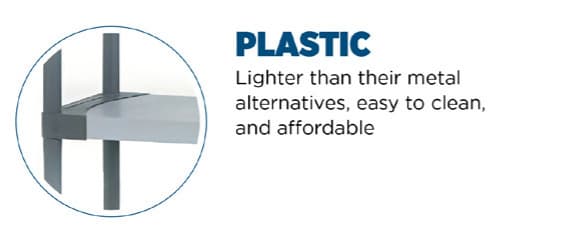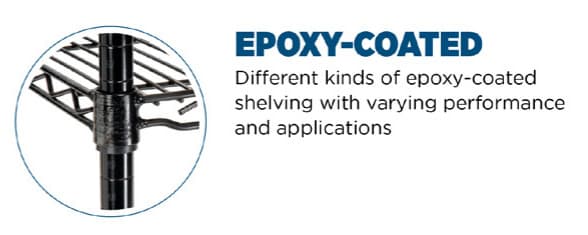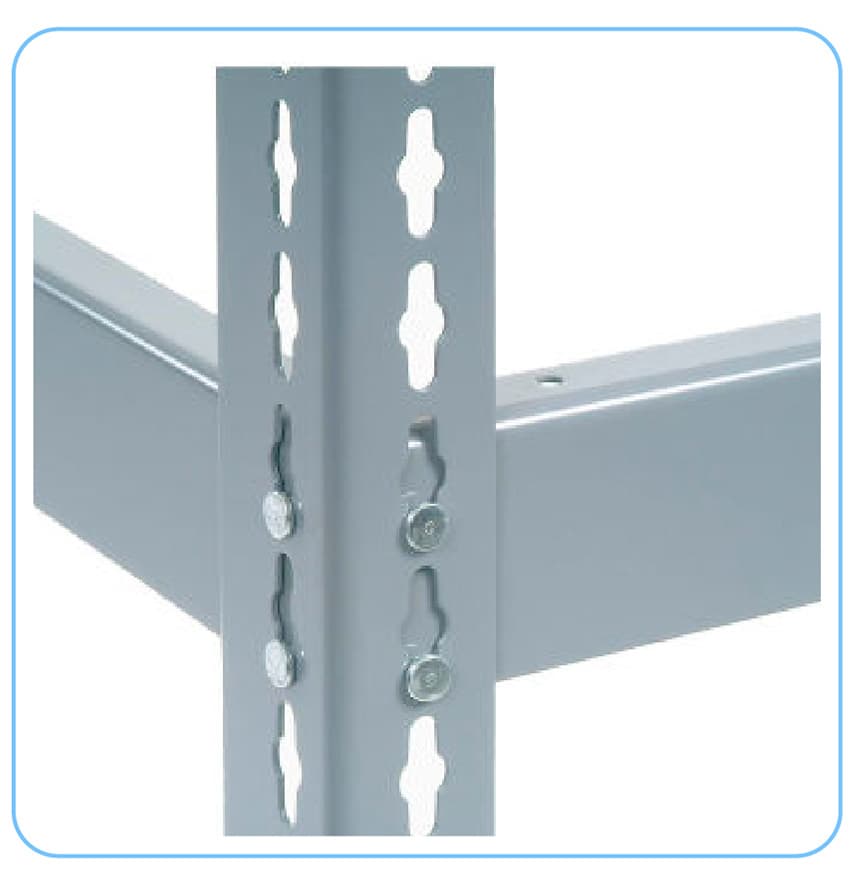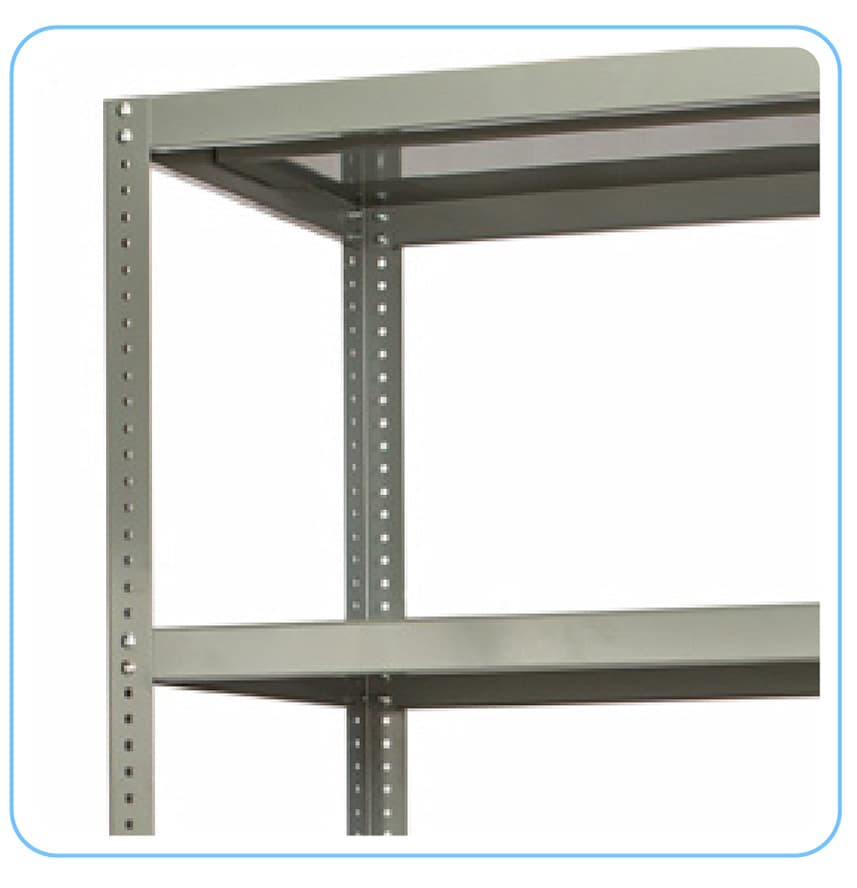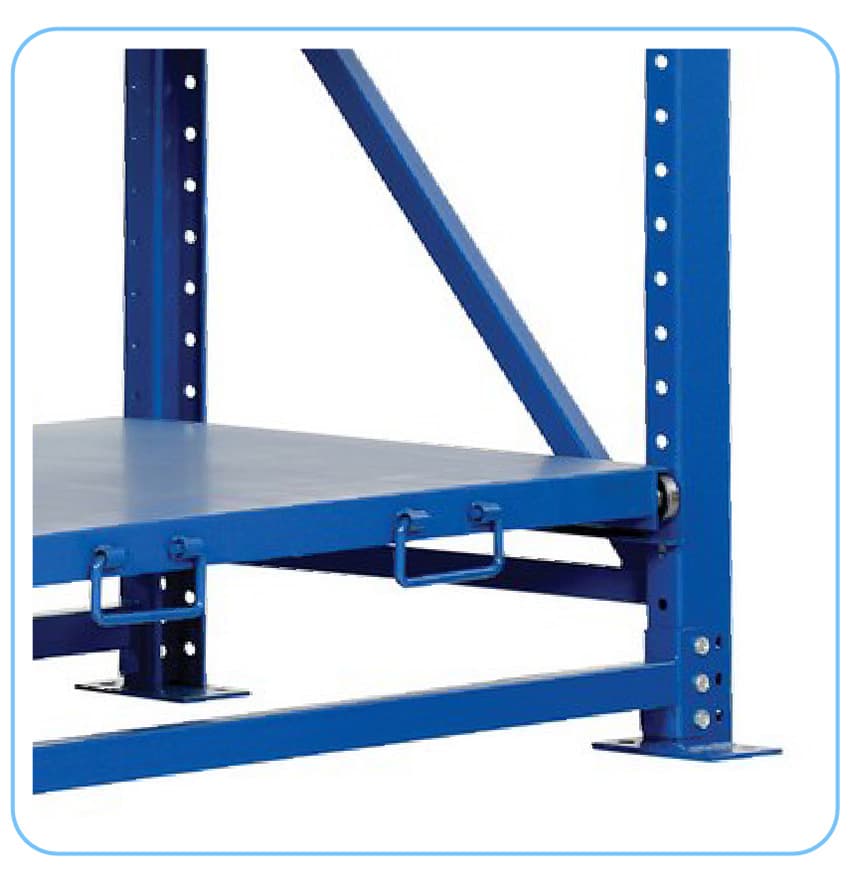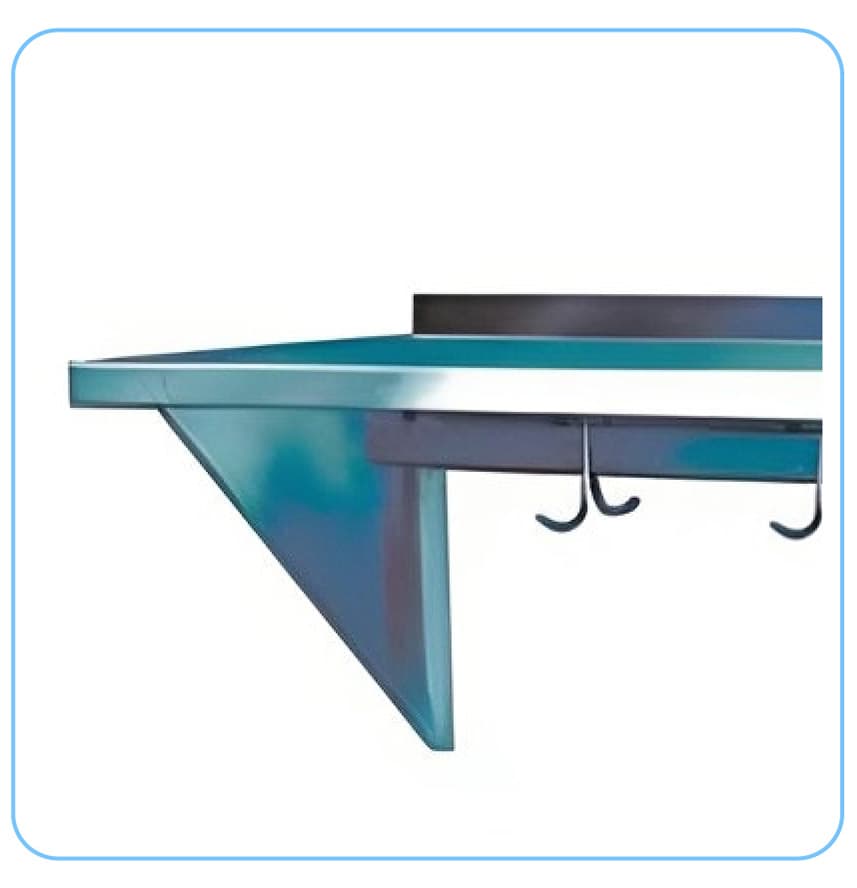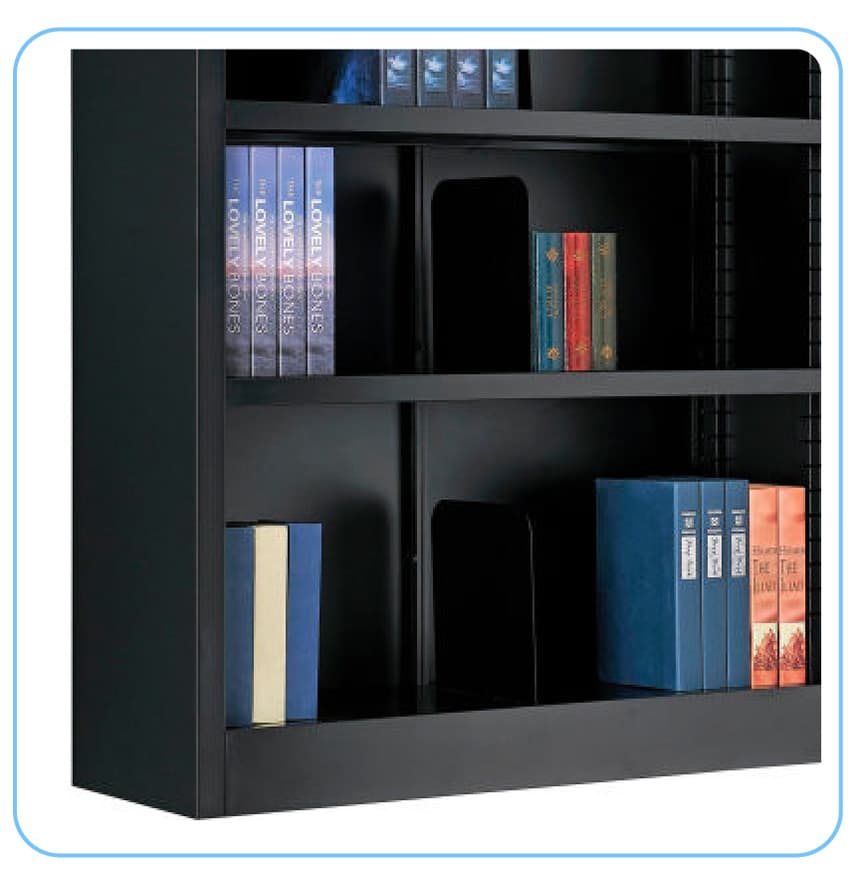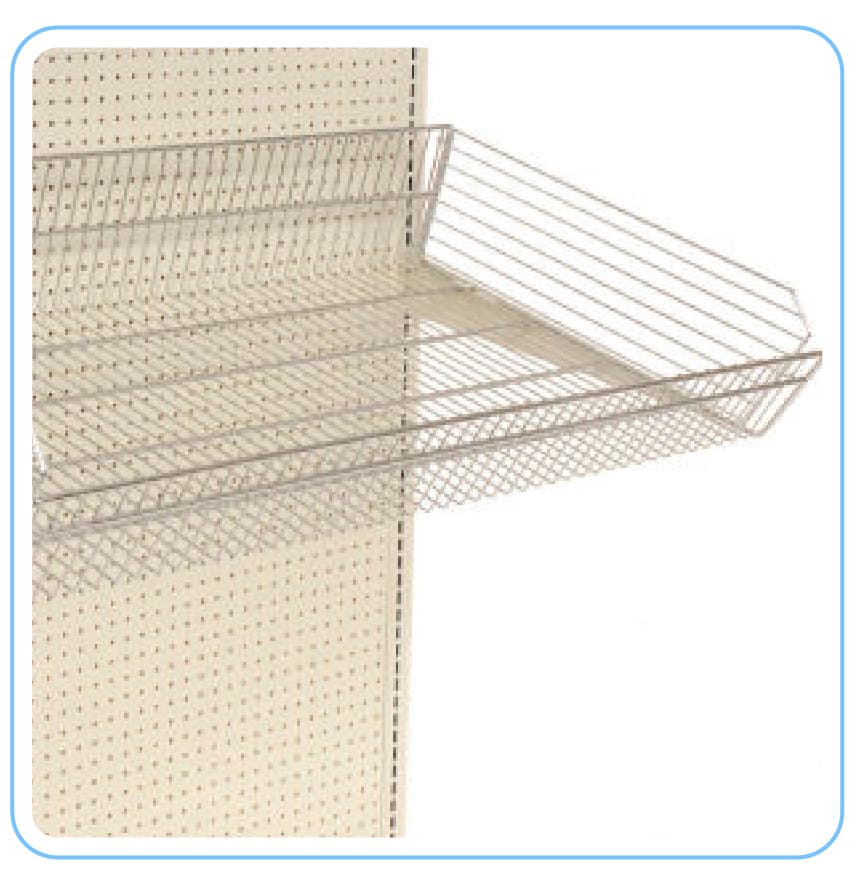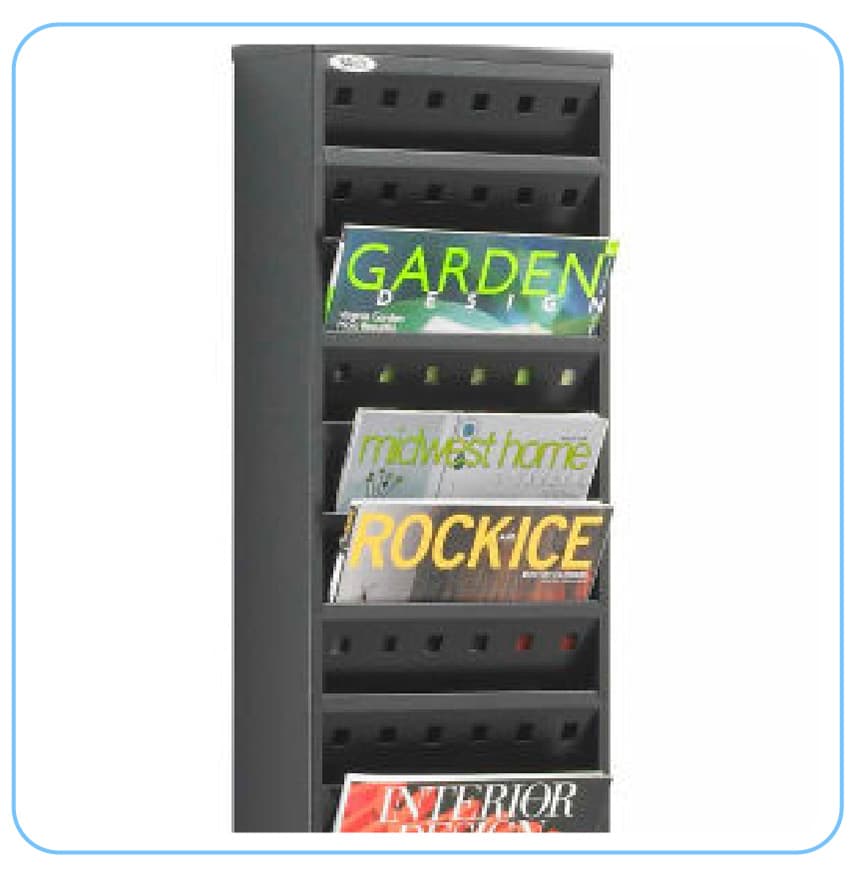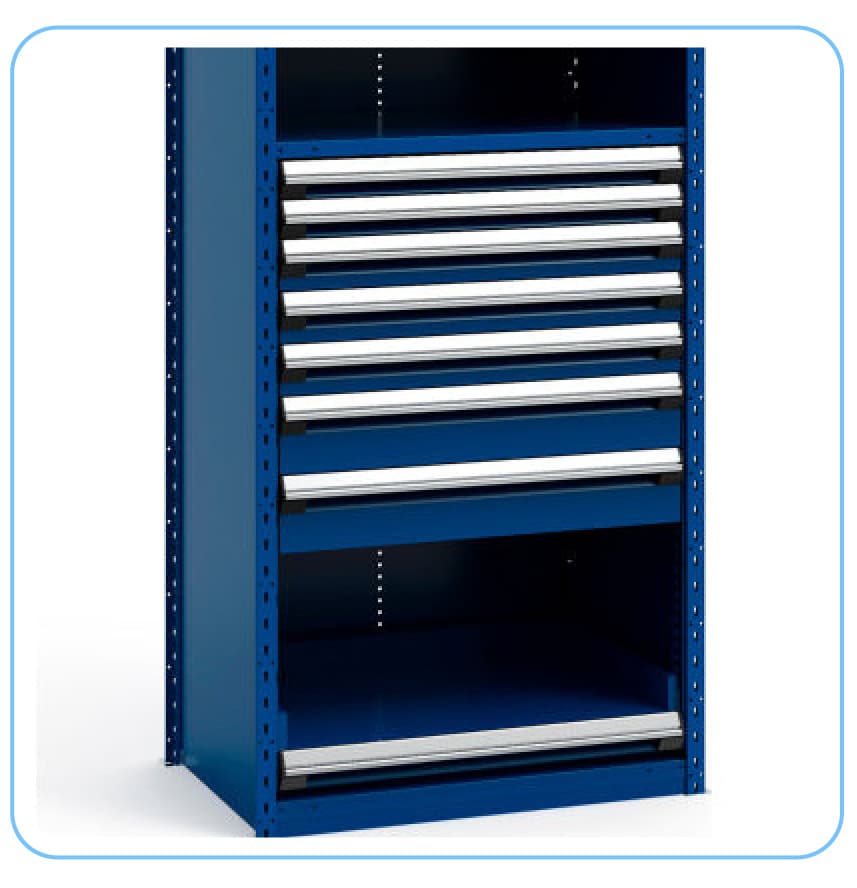Your Top-shelf Guide To Commercial Shelving
Let’s face facts. Industrial shelving isn’t a want, it’s a need. Whatever industry you’re in, from healthcare and education to retail, foodservice and hospitality, you are going to need good shelving solutions. Chances are you already have significant commercial shelving in place, but it’s either old, in need or expansion, or is just inadequate for your current storage requirements. Let’s take a look at some areas of concern you need to take note of ASAP.
Signs that you need to invest in new/additional shelving.
There are several reasons you need to consider investing in new commercial shelving sooner rather than later. Some of them are a high priority.
1: Shelving/storage areas are not OSHA compliant.
This is a big deal. OSHA has strict rules in place regarding shelving and safety, and with good reason. Accidents and even deaths can happen if shelving guidelines aren’t followed, and there are also fire risks with poor shelving as well. Some of these rules include how far from the ceiling your shelving can be, the maximum weight your shelving units can hold, and even placement in relation to fire sprinklers, exits, and floor openings.
2: The shelving is buckling under the weight of the contents.
Check your office supply closets, cleaning closets, and storage rooms. Are you seeing shelves that are strained to breaking point? That’s not good. Overloading shelving is very dangerous. Every shelving unit you buy will have a maximum weight allowance and you should be at or under that. If any of your shelving units are bowing or buckling under the strain, it’s time to add more shelves to take the load of the current ones. And double-check those overloaded units for cracks, scrapes and other damage. It’s possible they are due to be replaced as well due to the strain they’ve been under.
3: Shelving has signs of rust/corrosion that cannot be removed.
Shelving units can be compromised over time, especially if they’re open to the elements or come under daily abuse from loading/unloading. Inspect your shelving units for any signs of corrosion and replace it immediately.
4: There’s a wobble, swaying, or other general indications of poor stability.
All of your shelving units and storage racks should be as steady as a rock. No leaning. No swaying. No unsteadiness. If any of your shelving is not 100% solid it’s time to look into a replacement. Propping a piece of folded card under a wobbly corner is only delaying the inevitable - either a shelf collapse or another avoidable accident.
5: It’s getting harder to keep the shelving clean.
This is a known issue in retail shelving in particular. If it’s taking longer and longer to clean your shelving units, especially where food is involved, then it’s likely your industrial shelving units are past their prime and need to be updated. When customers are involved, unsightly/old/unclean shelving can be a barrier to purchase.
6: There’s either not enough shelving, or way too much.
Obviously not having enough shelving for your storage needs is a big problem. But there’s also the issue of having too much shelving that’s not being utilized, and that’s just inefficient. You may well need to invest in smaller, but more updated, shelving units that free up space in your facility for something that actually helps the business.
What kinds of shelving should you buy?
That depends on several factors including the industry you’re in, what the shelves will be holding, where the shelves are located, and several other factors. Let’s take a look at the most common kinds of commercial shelving. (Oh, and please note that warehouse shelving is not included here as that requires pallet racking; a different kind of heavy duty shelving system used primarily in warehouse environments with forklifts).
And remember, whatever shelving units you opt for, selecting the correct containers and organizers to pair with them creates the perfect storage solution, and it’s completely customizable.
Shelving Materials
Let’s start with what the shelving needs to be made of. In some instances, you have a lot of flexibility here, in others you need to choose carefully for your environment. Here’s a breakdown of the main kinds, starting with metal shelving:
Steel -
Open steel shelving is an adaptable industrial storage solution that’s both durable and sturdy (especially with units featuring x-shaped anti-sway braces and roll-formed steel ribbed shelves). They are built for function over style, so are best used in closets, garages, storage rooms, and other areas that aren’t public-facing.
Durable, naturally resistant to corrosion, and long lasting, this is a great choice for many different environments (including wet and dry). This metal shelf is tough and can take a beating, and is great for anything from housekeeping closets and foodservice storage, to mailrooms and garages/sheds. Galvanized steel is also a great option for this.
Plastic -
Don’t be fooled into thinking plastic shelving is only for lightweight storage solutions. For example, DuraShelf units can handle up to 5,250lbs of weight. These units are lighter than their metal alternatives, easy to clean, and affordable. Again, great all-rounders good for almost any industrial storage environment.
Chrome -
Affordable, attractive, and versatile, chrome is a popular choice for stockrooms, garages, dry storage, retail, and heated environments. However, although rust-resistant it is not rust proof. Bear that in mind when considering where and how this will be used (food storage or medical applications may not be best suited here).
Aluminum -
Its ability to withstand varying temperatures makes the aluminum shelf a superb material for shelving. Ideal for cold rooms (server storage), food prep and storage, and sterile storage, it’s a flexible, lightweight, robust and durable option for many industries.
There are several different kinds of epoxy-coated shelving available to you, with varying performance and applications. For example, Nexel® Black Epoxy and Nexelate® options are NSF approved for wet or dry use, offer lasting protection from rust and corrosion, and come with a 7-Year Warranty. Poly-Z-Brite® and Poly-Green® shelving features a powder-coated finish with NEXGard®, an anti-microbial agent that protects the epoxy coating from bacteria, mold, and mildew that causes odors and product degradation, and comes with a 15-Year Warranty. Nexelon® shelving features a top-of-the-line, blue metallic finish (with NEXGard®) designed to handle extreme wet, hot or cold environments and offers a Limited Lifetime Warranty.
Kinds of Shelving
Aside from material, you also have several options available for the kind of shelving unit you can put in your facility. Most facility managers choose some kind of wire shelving option (in the appropriate finish) as they are lightweight, strong, and easy to clean. Let’s take a look at some other commercial shelving options.
As the name implies, this shelving provides easy assembly and versatility. The durable metal construction ensures stability and strength, allowing you to store heavy items with confidence. Ideal for garages, warehouses, or any storage space that requires a sturdy and reliable solution.
High Capacity Bolted Shelving -
The ultimate heavy-duty storage solution for industrial and commercial spaces, these high-capacity storage shelves are made with heavy-gauge steel and rigid 2" x 2" angle posts that are reinforced with flanged channel construction. Shelves have a 3,000 lb. capacity and are designed to hold jigs, fixtures, dies, and other heavy materials.
High Capacity Roll-Out Shelving –
The ideal industrial storage for bulky or heavy objects and easy access to stored items, these shelves are made with heavy-duty 10-gauge steel and can hold up to 2,000 lbs. per shelf. High-capacity roll-out shelves can fully extend and lock into position for easy loading and unloading. Starter units and shelving add-ons are available with 3 to 6 shelves.
Equally at home in both residential and business environments, wall mounted shelves come in a wide variety of configurations, materials and colors. However, unlike freestanding shelf units they do need to be installed onto a wall surface, making them less flexible and more of a permanent fixture.
Wire shelving is not a great option for books, for obvious reasons. That’s why bookcases are still in high demand for classrooms, colleges, libraries and offices. Coming in a variety of materials including steel, laminate, wood and more, they’re tried and true for book and media storage.
Specifically suited to retail environments, gondola shelving is space-saving, flexible, easy to reconfigure, and can be used with a wide variety of accessories. Typically, it comes with either slatwall, pegboard, or mesh shelving.
You’ll find these in mailrooms and classrooms, and have been specifically designed to handle books, magazines, envelopes, internal memos and more. They can be freestanding, wall mounted, or placed on top of desks and workbenches.
When you need a combination of shelves and drawers in one unit, modular drawer shelving is ideal. Units come in a variety of different configurations, letting you choose height, number of drawers, and number of shelves. Very popular in office environments and classrooms.
Although this covers the vast majority of industrial shelving types available at Global Industrial, there are even more possibilities and customized solutions at your disposal. Our expert team is more than happy to connect with you to discuss the shelving options that would best suit your specific needs, so please reach out any time.
The information contained in this article is for informational, educational, and promotional purposes only and is based on information available as of the initial date of publication. It is the reader’s responsibility to ensure compliance with all applicable laws, rules, codes and regulations. If there is any question or doubt in regard to any element contained in this article, please consult a licensed professional. Under no circumstances will Global Industrial® be liable for any loss or damage caused by your reliance on this article.

